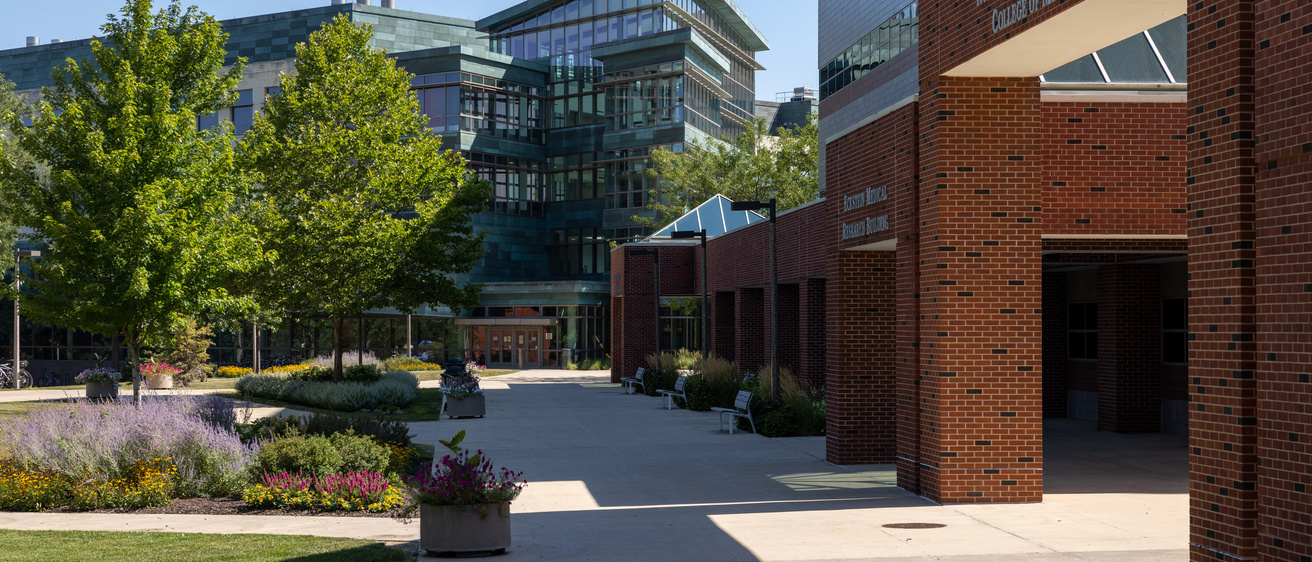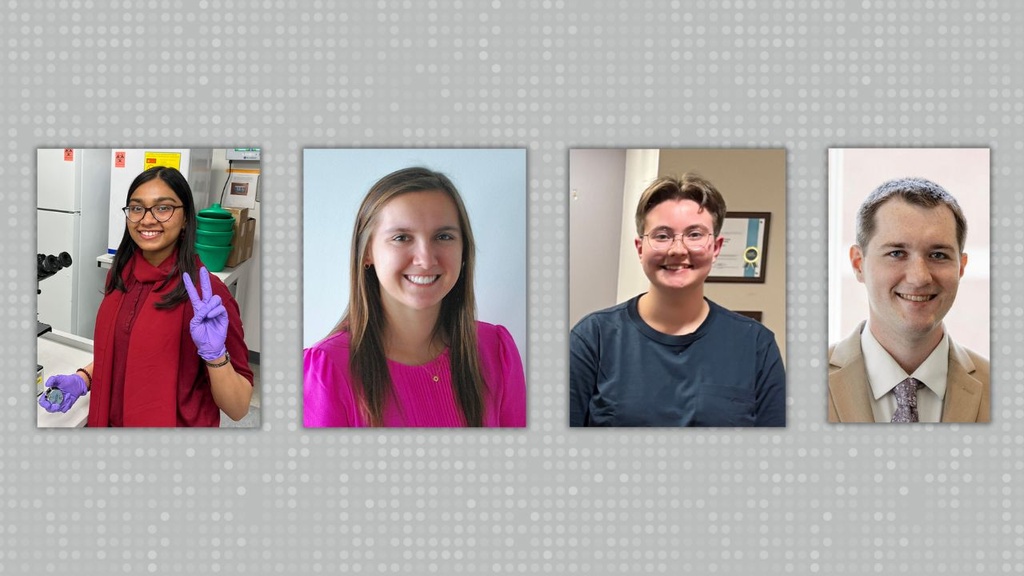Main navigation
Our mission is to provide PhD students with advanced knowledge of disease pathogenesis at the genetic, molecular, cellular and systems levels.
In addition, research performed for the PhD thesis will teach cutting edge basic and translational research skills, enabling graduates of our program to successfully investigate the basis of disease and lay the foundation for new and better therapies. The Experimental Pathology PhD Graduate Program is centered in the Department of Pathology and is a member of the Biomedical Science Graduate Program in the Carver College of Medicine at the University of Iowa.
Experimental Path PhD in the News:
Admissions
Thank you for your interest in the Experimental Pathology PhD subprogram. The Experimental Pathology subprogram is centered in the Department of Pathology and is a member of the Biomedical Science Graduate Program in the Carver College of Medicine at the University of Iowa. The Biomedical Science Program (BSP) oversees admissions and first-year graduate studies for the seven PhD subprograms, including Experimental Pathology.
Application Process
Students apply via the Biomedical Science Program Admissions portal found here:
All information and documents needed for the application process are listed on the Biomedical Science Program Admissions website.
Application fee waivers are available to those who qualify. Also, the cost to apply is reimbursed by the Carver College of Medicine for all applicants who receive an interview invitation and complete the interview.
Questions about admissions procedures can be directed to BSP staff at BiomedSci-Admissions@uiowa.edu or by calling 319-335-8306.
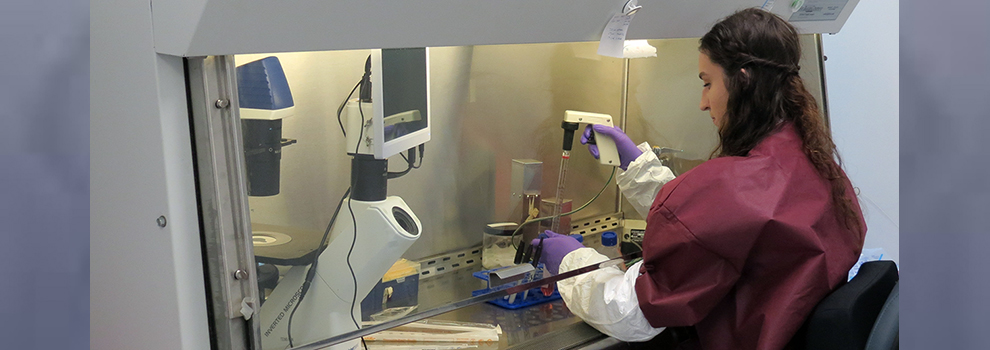
After admission:
Admitted first-year BSP students enjoy the flexibility of investigating several disciplines prior to affiliating with a specific subprogram by performing three research rotations in the laboratories of any of the BSP faculty, regardless of the faculty person’s program affiliation(s).
The BSP has organized its first-year curriculum in order to meet the dual goals of:
- Providing all students with an integrated, core foundation in modern molecular and cellular biology, biochemistry, genetics, quantitative literacy, and critical thinking
- Providing maximum flexibility to accommodate students' individual interests.
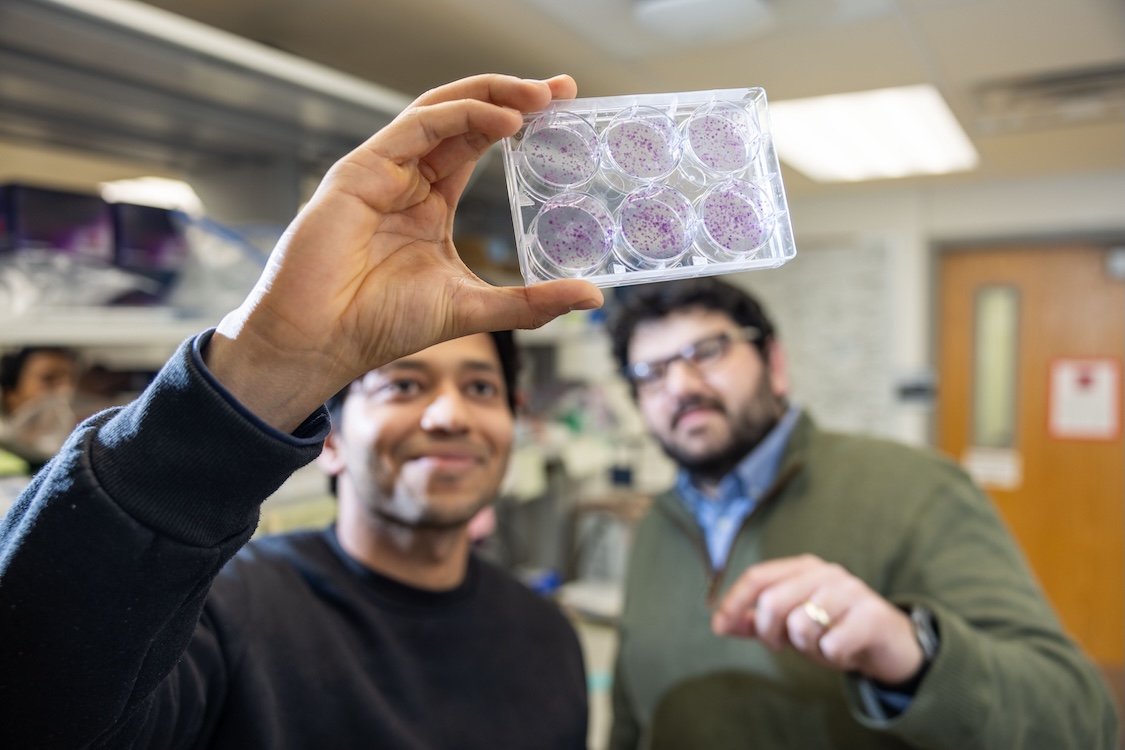
Direct admit pathway
Although uncommon, students may also apply for admission directly into the Experimental Pathology PhD subprogram (direct admit pathway). In order for this to happen, the student must have identified a faculty mentor in Pathology willing to fully support them from entry into the program until they complete all requirements and defend their thesis.
Accordingly, direct admit students do not perform rotations, but begin work immediately in the mentor’s laboratory. Importantly, direct admit students must meet the same academic and research qualifications as applicants admitted into the Biomedical Science Program, as determined by the BSP Admissions Committee.
Students who choose the Experimental Pathology PhD subprogram earn a PhD degree in Biomedical Science (Experimental Pathology).
Program overview
Faculty and laboratories
Graduate students in the Experimental Pathology PhD Program benefit from laboratory training that emphasizes clinical and translational aspects of human disease.
Although many investigators on the University of Iowa biomedical campus focus on various aspects of human disease, this is true of every laboratory-based researcher in the Department of Pathology. Moreover, in addition to utilizing standard mouse and cell-based approaches, our research faculty routinely use human patient substrate in their research and/or are bringing new therapies to the clinic.
| Faculty | Research Lab | Focus |
|---|---|---|
| Vladimir Badovinac | Badovinac Lab | Immune anergy after sepsis; T cell responses to pathogens |
| Dustin Bosch | Bosch Lab | Intestinal commensal interbacterial interactions |
| Alexander Boyden | Boyden Lab | B cells in CNS autoimmune demyelinating disease; B:T interactions |
| Hasem Habelhah | Habelhah Lab | Inflammation in cancer initiation and progression |
| John Harty | Harty Lab | T cell responses to malaria and influenza |
| Marco Hefti | Hefti Lab | Tau in brain development and neurodegenerative disease |
| Zizhen Kang | Kang Lab | Immunology of neurodegenerative diseases, mucosal immunity |
| Nitin Karandikar | Karandikar Lab | Basis of autoimmune disease (emphasis on M.S.) |
| Kevin Legge | Legge Lab | T cell response to influenza; Universal influenza vaccines |
| Bing Li | Li Lab | Role of fatty acid binding proteins in immune cell function |
| Jia Luo | Luo Lab | Effect of alcohol in neurodegeneration, pancreatitis and breast cancer |
| Ashu Mangalam | Mangalam Lab | Effect of microbiome on autoimmune disease (emphasis on M.S.) |
| Steven Moore | Moore Lab | Pathogenesis of muscular dystrophy |
| Steven Offer | Offer Lab | Colorectal cancer initiation and progression |
| Shailesh Shahi | Shahi Lab | Obesity-altered gut microbiota, immune dysregulation, and multiple sclerosis |
| Munir Tanas | Tanas Lab | Genetic basis of carcinogenesis (emphasis on sarcoma) |
| Shujie Yang | Yang Lab | Targeted therapies in endometrial cancer |
Coursework
Year 1: First year Biomedical Science Program students take a common curriculum as listed below. These courses are described in more detail on the BSP Curriculum website.
Fall semester of Year 1:
- BMED:5207 Principles of Molecular and Cellular Biology (3 s.h.)
- BMED:5208 Topics in Principles of Molecular and Cellular Biology (1 s.h.)
- BMED:7777 Biomedical Science Seminar (1 s.h.)
- BMED:7888 Biomedical Science Research (Arranged)
One of the following Biostatistics courses:
- PCOL:5204 Basic Biostatistics and Experimental Design (1 s.h.)
- BIOS:4120 Introduction to Biostatistics (3 s.h.)
Spring semester of Year 1:
- PATH:5270 Pathogenesis of Major Human Diseases (3 s.h.)
- MMED:6260 Methods for Molecular/Translational Medicine (1 s.h.)
- PHAR:6504 Mastering Reproducible Science (1 s.h.)
- BMED:7777 Biomedical Science Seminar (1 s.h.)
- BMED:7888 Biomedical Science Research (Arranged)
Year 2: Students committed to the Experimental Pathology subprogram they are required to take a semester long biostatistics course (Introduction to Biostatistics), a professional development class (Pathology Seminar) and an elective in the area of their thesis research (see list below). Students also take Scholarly Integrity and Responsible Conduct of Research during both semesters of the second year.
Fall semester of Year 2:
One Elective (3-4 s.h.) is required either in the fall or spring semester
- BIOS:4120 Introduction to Biostatistics (3 s.h.) if not taken during Year 1
- BMED:7270 Scholarly Integrity/Responsible Conduct of Research (0 s.h.)
- PATH:7211 Research in Pathology (Arranged)
Spring semester of Year 2:
One Elective (3-4 s.h.) is required either in the fall or spring semester
- PATH:6220 Seminar in Pathology (1 s.h.)
- BMED:7271 Scholarly Integrity/Responsible Conduct of Research (0 s.h.)
- PATH:7211 Research in Pathology (Arranged)
Subsequent semesters:
- PATH:7211 Research in Pathology (minimum of 2 s.h.)
Total Hours:
Total student hours of coursework = 19-20
Total student hours of research = 52-53
Total student hours = 72
Possible Electives:
Electives are determined by the area of thesis research
- MMED:6220 Mechanisms of Cellular Organization (3 s.h.)
- MMED:8115 Molecular Physiology (4 s.h.)
- MMED:6226 Cell Cycle Control (1 s.h.)
- MMED:6227 Cell Fate Decisions (1 s.h.)
- FRRB:7001 Molecular and Cellular Biology of Cancer (3 s.h.)
- MICR:6247 Graduate Immunology and Human Disease (4 s.h.)
- MICR:6267 Graduate Viruses and Human Disease (4 s.h.)
- MICR 6259 Graduate Bacteria and Human Diseases (3 s.h.)
- IMMU:6201 Graduate Immunology (3 s.h.)
- NSCI:5653 Fundamental Neurobiology (3 s.h.)
- NSCI:7235 Neurobiology of Disease (3 s.h.)
- GENE:6150 Genetic Analysis of Biological Systems (3 s.h.)
- GENE:7191 Human Molecular Genetics (3 s.h.)
- PCOL:6225 Growth Factor Receptor Signaling
Teaching
The Experimental Pathology subprogram does not have a teaching requirement. However, there are opportunities to teach or TA if students desire this experience.
Publication requirements
Students must have one first author peer-reviewed paper published or in press, as well as a co-authored peer-reviewed paper or review article published or in press prior to being allowed to schedule their dissertation defense.
Comprehensive exam
The comprehensive exam will normally be taken during the second (spring) semester of the second year. For students with advanced standing, they will be eligible to take the exam during the first (fall) semester of the second year. The Comprehensive exam committee will consist of the student’s Dissertation committee minus the mentor. A replacement member will be appointed by the Experimental Pathology Director in consultation with the four standing members of the Dissertation committee. The chair of the Dissertation committee (who is not the mentor) will also serve as chair of the Comprehensive exam committee.
The comprehensive exam will take the form of a grant proposal and will be "off-topic". Specifically, the focus of the proposal will be in the field of the student’s research, but must not be directly related to the dissertation project. In order to determine the topic, each of the five comprehensive exam committee members will choose a recent high-profile paper in the area of the student’s research interests (but not directly related to the dissertation project). After examining the papers, the student will choose one and make it the subject of their comprehensive exam.
Upon choosing the topic of the exam, the student will then prepare and submit a two-page single spaced abstract to the committee (not including references). The abstract will include the background/rationale, the significance of the question being asked and an outline of the specific aims. Upon approval of the abstract (edits or re-writes are likely), the student will be given permission to prepare a full proposal based on the NIH R21 format. Specifically, the proposal will be seven single spaced pages (not including references) and must include the Specific Aims, Significance, Innovation and Experimental Approach sections. The proposal will then be defended orally in front of the entire committee.
Timelines, outcomes and remediation (if necessary) will be standard and in accordance with Graduate College guidelines. These are detailed in the Experimental Pathology Student Handbook (pages 13–19).
Student resources
Stipend and tuition support
All Pathology graduate students receive full stipend and tuition support until they complete the program. Stipend amounts are at the same level as other graduate programs on the biomedical campus. Stipend support for the upcoming 12-month fiscal year (ending June 30, 2026) is $35,600. The stipend is paid to students on a monthly basis. Support for new incoming students begins on the first day of classes for the semester.
All Pathology graduate students have their tuition and fees paid until they complete the program.
The program also pays most of the costs for health and dental insurance. For more information on health and dental benefits, please go to:
Policy handbook
This policy handbook outlines all key information for students and faculty of the Experimental Pathology PhD subprogram.
Download the Experimental Pathology PhD Graduate Program Handbook here.
Scholarship information
The Department of Pathology will award two scholarships each year, on behalf of the Marilyn Ohm-Smith Pathology Student Scholarship Fund.
This scholarship will go to current University of Iowa graduate students in the Pathology MS or Experimental Path PhD programs, studying microbiology, infectious disease or cancer.
For more information, please visit the Marilyn Ohm-Smith Pathology Student Scholarship Fund page.
Additional links and resources
Contact information
Program director
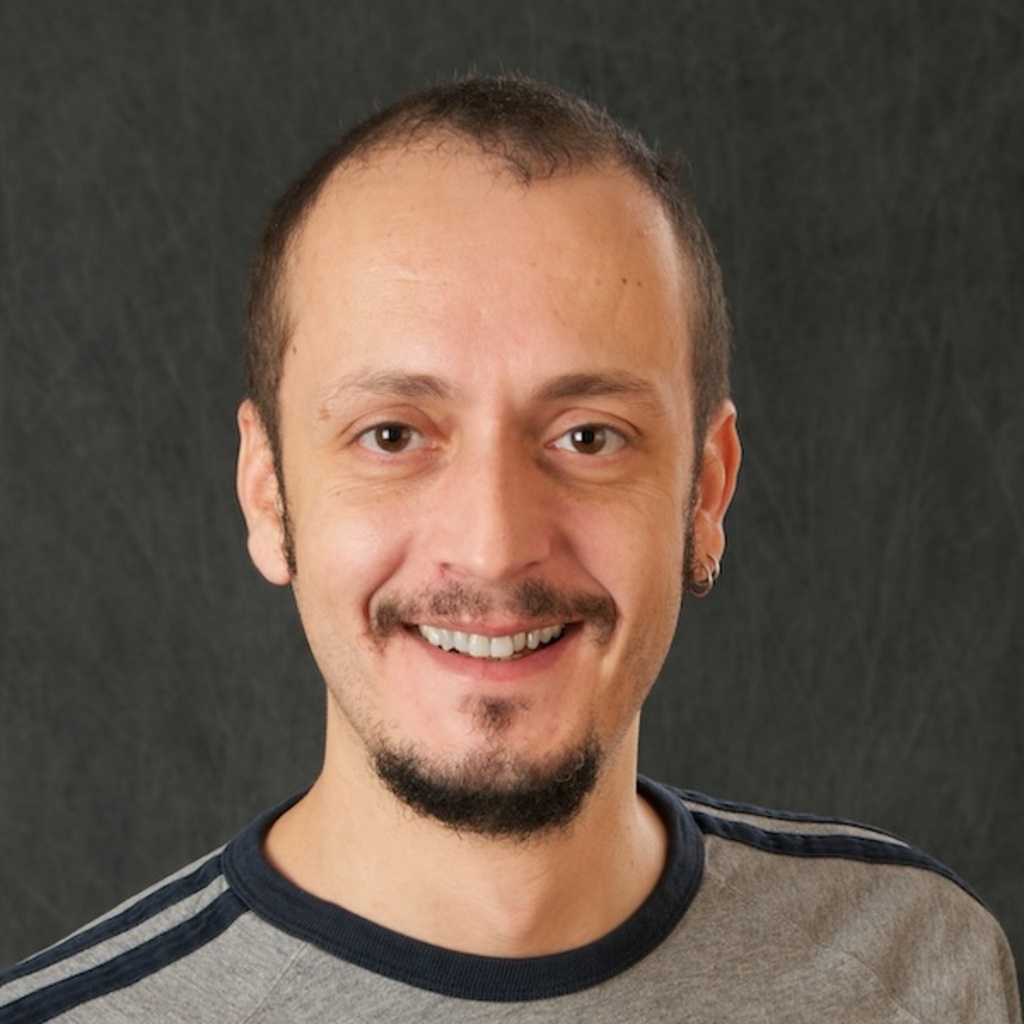
Vladimir Badovinac, PhD
Program oversight committee

Alexander Boyden, PhD

Kevin L. Legge, PhD

Ashutosh Mangalam, PhD
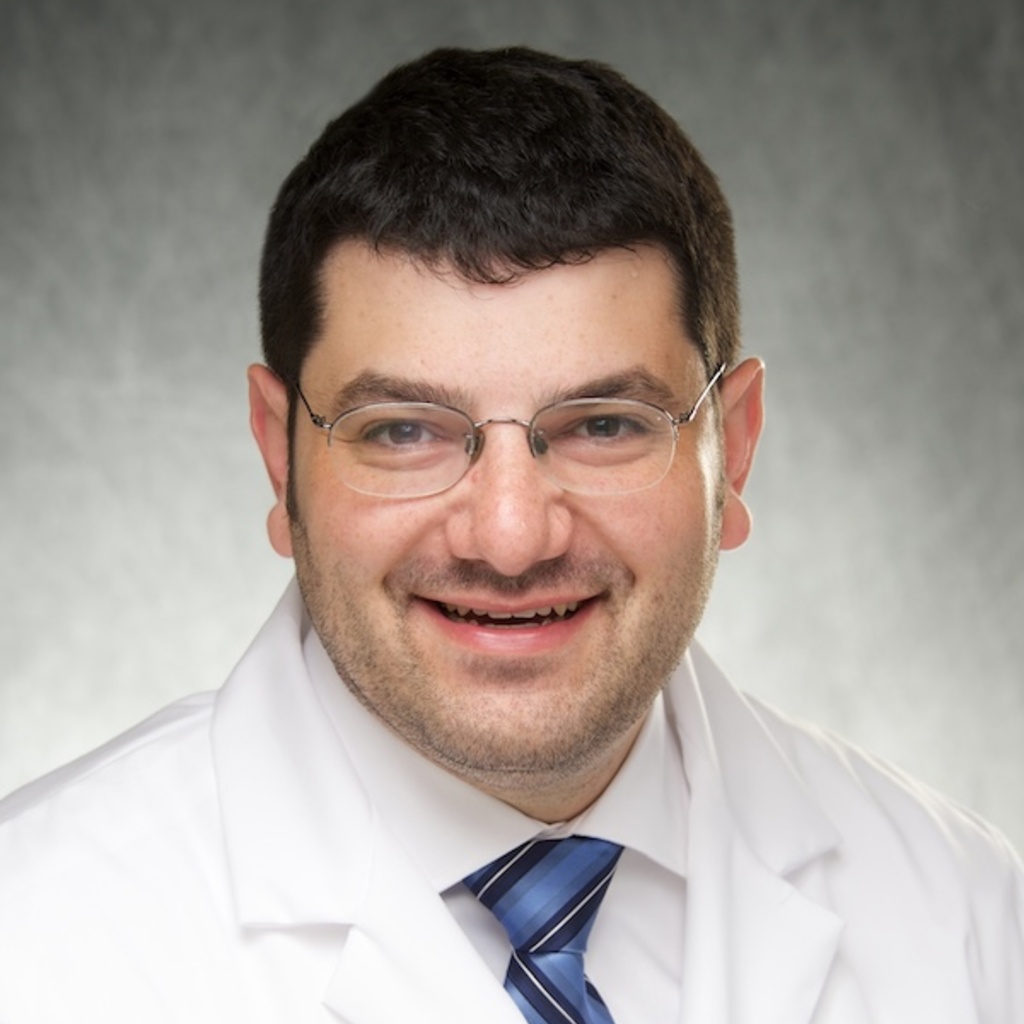
Munir Tanas, MD
Program coordinator

Gabriella Young, MLS
Current students
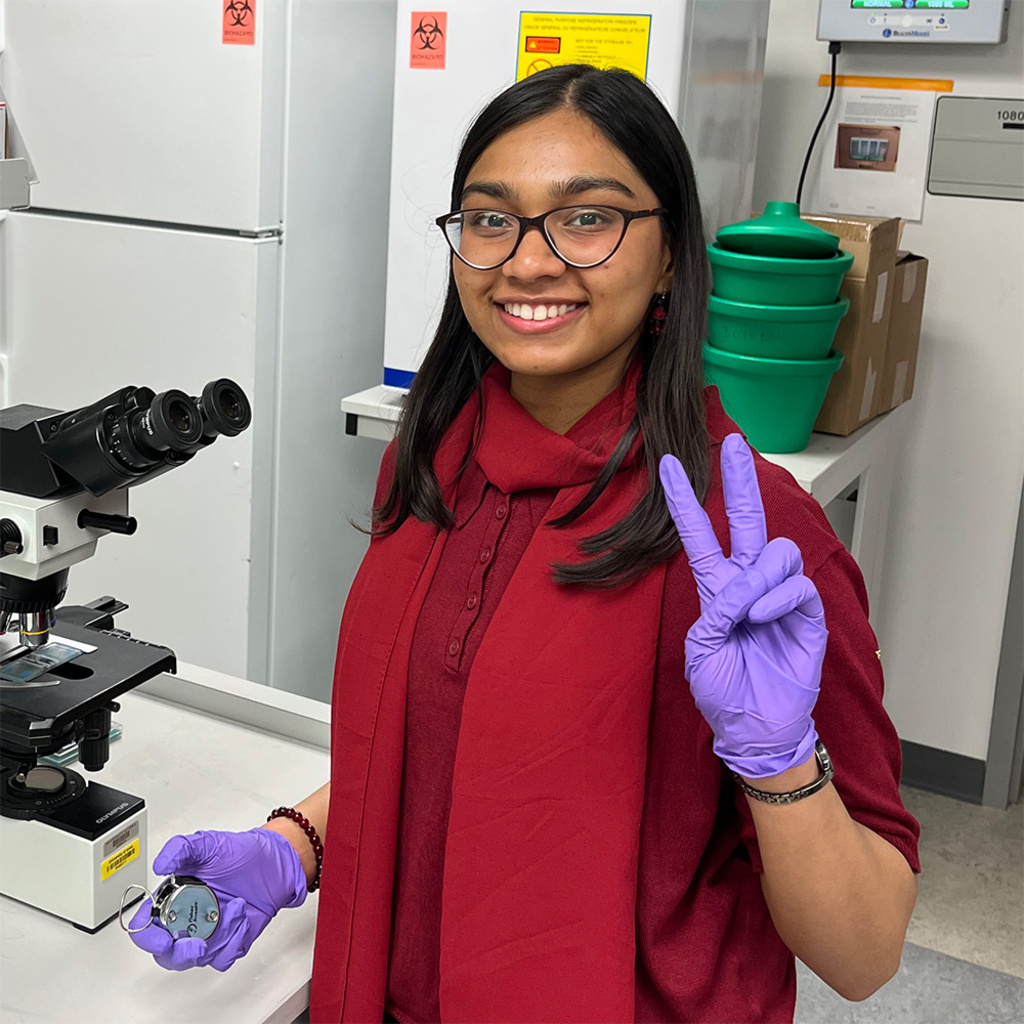
Nimra Aman, MS

Elizabeth Escue, MS

Mohammad Heidarian, MS
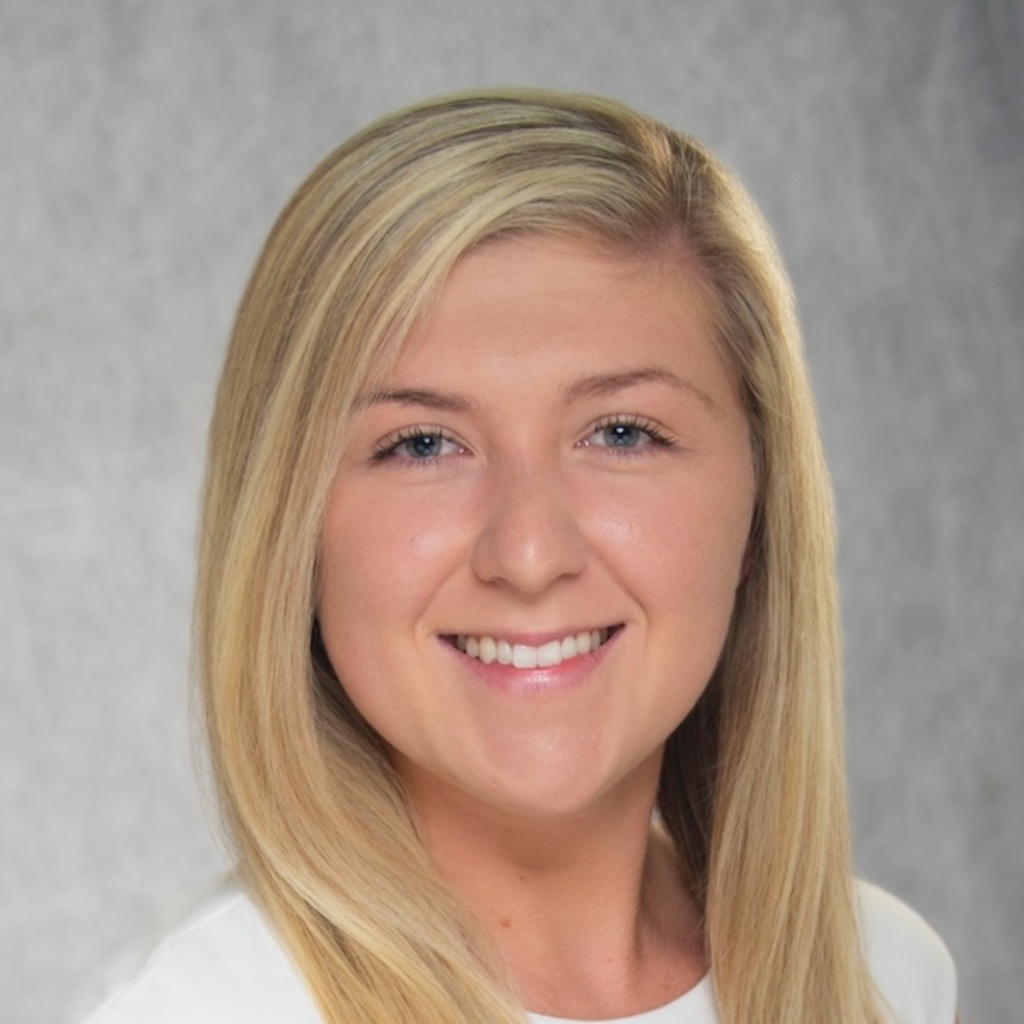
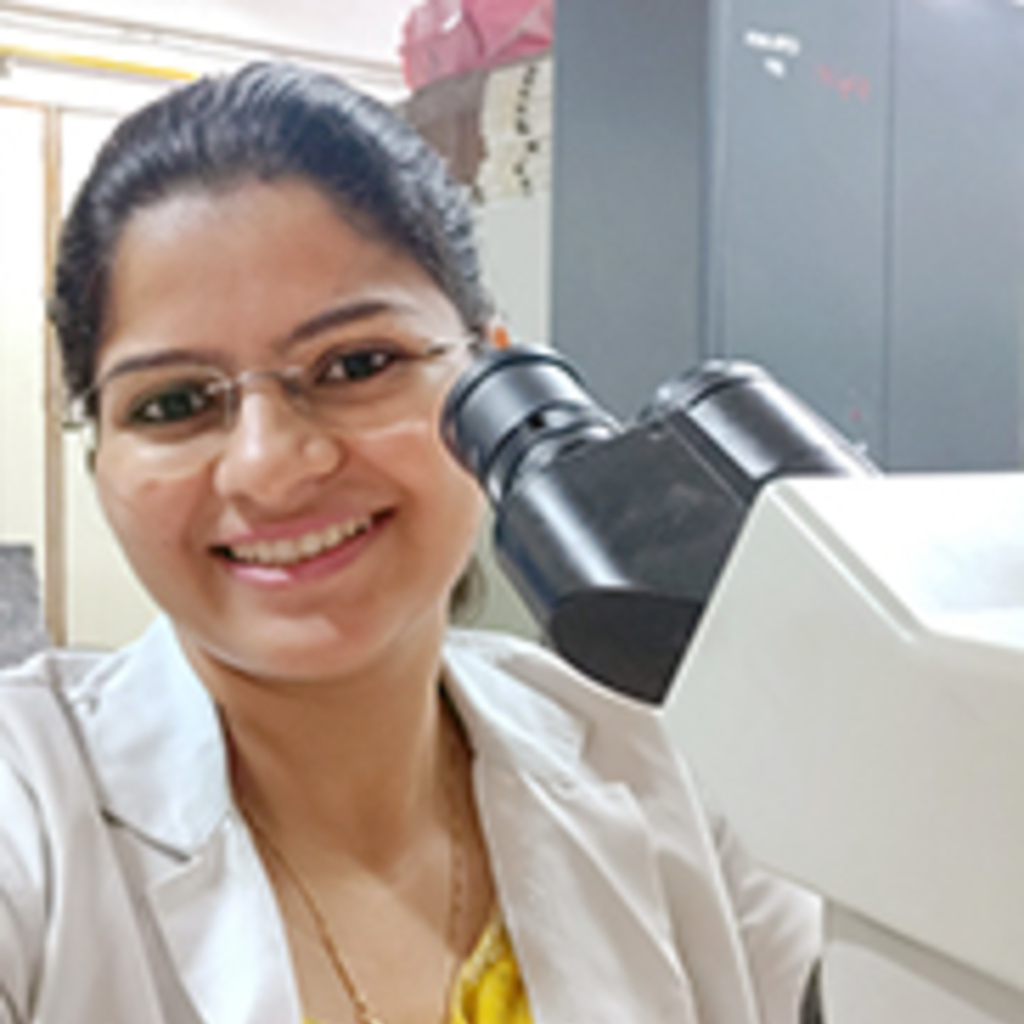
Kshitija Kale, MBBS, MD
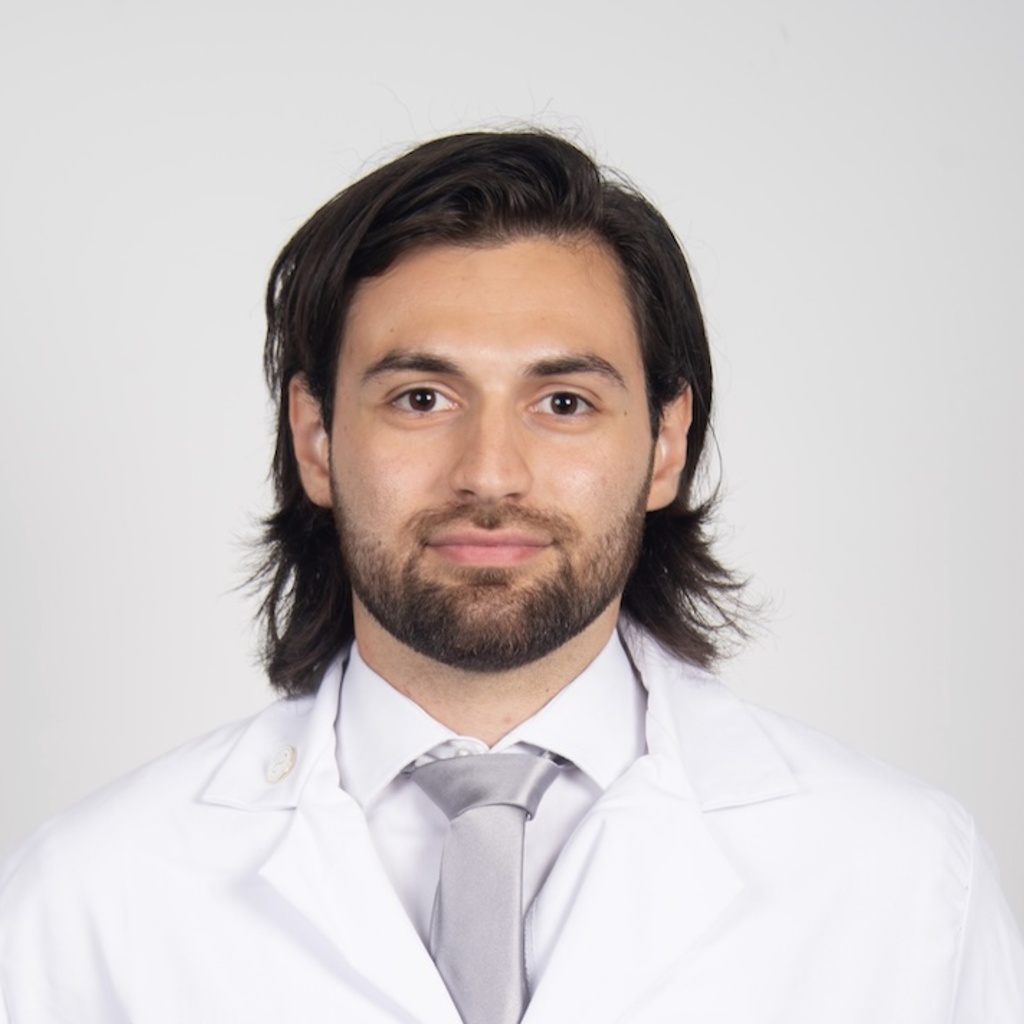
Andreas Kantartzis, BS

Peter Lehman, MS
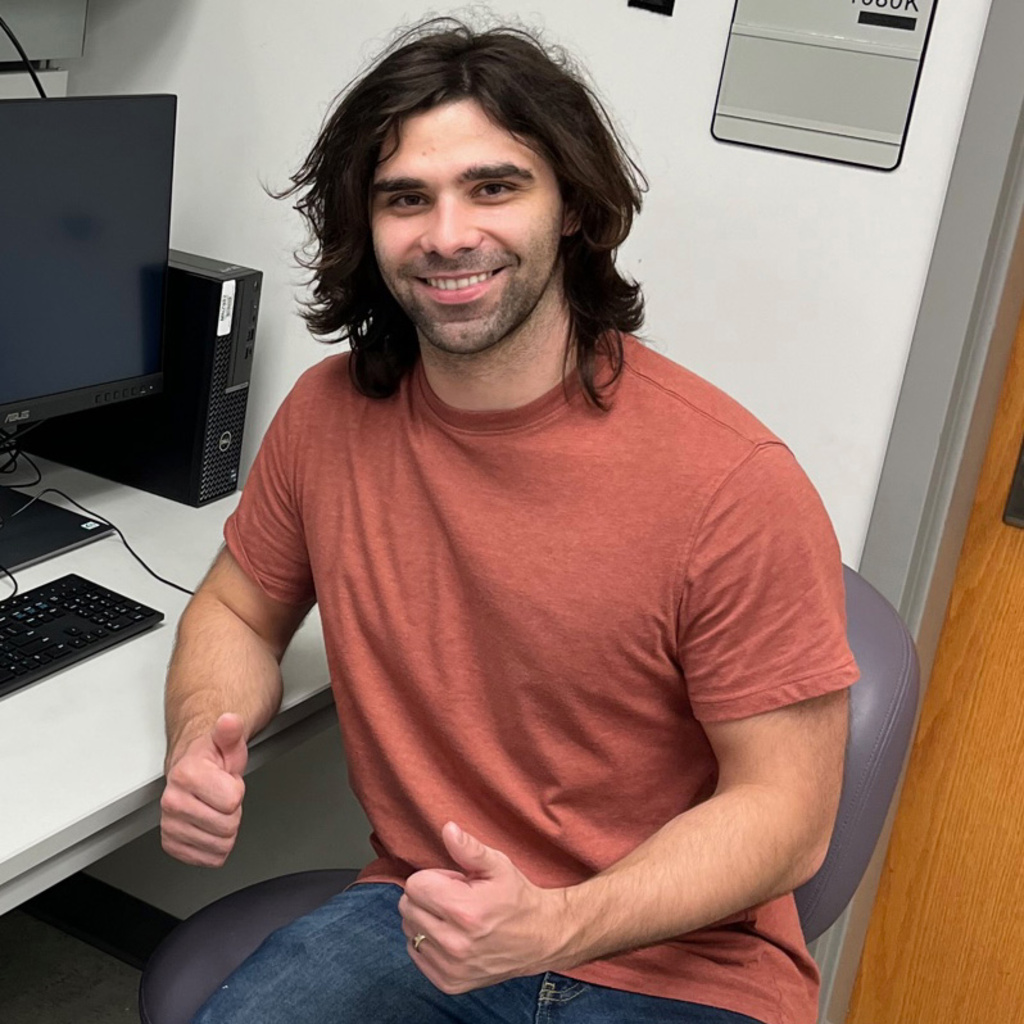
Connor Wilhelm, MS
Alumni
| Graduate | Previous Institution | Mentor and Year of Thesis Defense | Title of Thesis Project | After Graduation |
|---|---|---|---|---|
| Mohit Upadhye | Maharashtra University of Health Sciences | Karandikar 2025 | Myelin-reactive CD8+ T cells influence conventional dendritic cell subsets towards a mature and regulatory phenotype in experimental autoimmune encephalomyelitis (EAE) | Washington University in St. Louis-Post doc |
| Nastaran Daneshgar | Mashhad University of Medical Sciences | Dao-fu Dai, Chad Grueter 2024 | Klotho-Sirt1-CHK2 Pathways in the Regulation of Cardiac Function in Aging and Post-Myocardial Injury | University of Kentucky, Post doc |
| Kimberly (Fiock) Franklin | University of Iowa | Marco Hefti, 2023 | Drivers of Astrocytic Tau Patholog in 4R Tauopathies | Assoc. Research Scientist/Engin, University of Iowa |
